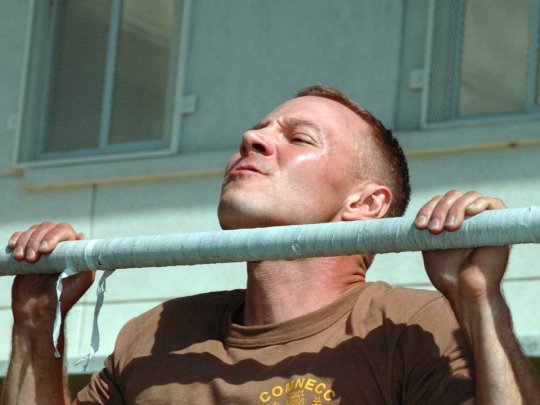#whatever that science thing of overestimations counteracting underestimations is
Note
If you get this, answer with three random facts about yourself and send it to the last seven blogs in your notifs! anon or not, doesn't matter, lets get to know the person behind the blog <3
Hi, wasn't expecting this, but cool!
I'm pb-and-jammothy, I'll probably answer to any variation of that pseudonym, except for Jim, and quite a few unrelated nicknames, here are some fun facts about me:
I'm British American, but in a kinda weird way, often this can be seen in my relatively shallow understanding about British or American things, and me using British and American spelling (though I tend to stick to one spelling of a word, it may just be an American spelling right next to a British one).
I really like cooking! I'm rather a picky eater for sensory reasons, and I'm really not a fan of trying new foods, so I'm rather proud of my abilities in the kitchen. Learning how to cook vegetables in a way where I actually enjoy them is an Absolute Game Changer whooo boy. My goal this year (which I've been achieving - 2 I've tried and been successful with and a handful ready to try next) is to learn new recipes for things I can make regularly.
I have 3 notes for fanfic ideas for a combined total of just under 14k words, with the separation being by fandom. I want to make progress in turning them from rambles about ideas into actual fics, but most of them are geared towards multi-chapter long-fics, which I've tried writing over the years, but haven't finished a single one, hence why my current ao3 accounts only have one shots published. Can't really work on any of them right now since I've got deadlines, but maybe this is a project for the summer (alongside reading a bunch of mythology books in prep for a Percy Jackson inspired ttrpg campaign I'm gonna run).
Uhh yeah, that's me. 😁👍
#it's ya boi Jammothy#ask#the fandoms are Good Omens DC (specifically batfam) and CW's Supergirl if anyone's curious#though I haven't really thought about the latter much since the show ended which makes me feel some kinda way#that's the fandom I've got 52 ideas for spread across ~7k or so words#just did the math and good omens (24 ideas) has a mean of ~161 words per idea#batfam (14 ideas) has an average of ~206 words per idea#and supergirl (52) has an average of ~139 words per idea#but that one's a bit skewed since there's a handful of 1 word ideas pulling the number lower#and then some Long ones thrown in there too#so idk maybe that actually cancels out#whatever that science thing of overestimations counteracting underestimations is#oh I Definitely rambled here#both in text and in tags#whoops
5 notes
·
View notes
Text
11 fitness myths that are doing more harm than good

Shutterstock
By Erin Brodwin, Business Insider
Whether you want to tone up, slim down, or boost your mood, you’ve likely taken a stab at tweaking your fitness routine.
Unfortunately, there’s a lot of fitness advice out there that won’t help you meet your goals and could actually do more harm than good.
Here’s an overview of some of the most enduring workout myths and misconceptions, as well as the real science that can help you meet your fitness goals in a healthy way.
Myth: To stay in shape, you only need to work out once or twice a week.

Truth: Once or twice a week won’t cut it for sustained health benefits.
“A minimum of three days per week for a structured exercise program” is best, Shawn Arent, an exercise scientist at Rutgers University, recently told Business Insider. “Technically, you should do something every day, and by something I mean physical activity — just move. Because we’re finding more and more that the act of sitting counteracts any of the activity you do.”
Myth: The best time to work out is first thing in the morning.

Truth: The best time for a workout is whatever time allows you to exercise most consistently. Ideally, you want to make physical fitness a daily habit, so if late-night trips to the gym are your thing, stick with it. If you prefer a morning run, do that instead.
Don’t have a preference? Some research suggests that working out first thing in the morning might help speed weight loss by priming the body to burn more fat throughout the day.
Myth: Weight lifting turns fat into muscle.

Truth: You can’t turn fat into muscle. Physiologically speaking, they’re two different tissues. Adipose (fatty) tissue is found under the skin, sandwiched between muscles, and around internal organs like the heart. Muscle tissue — which can be further broken down into three main types — is found throughout the body.
What weight training really does is help build up the muscle tissue in and around any fat tissue. The best way to reduce fat tissue is to eat a healthy diet that incorporates vegetables, whole grains, lean proteins and — somewhat paradoxically — healthy fats like olive oil and fish.
Myth: Puzzles and games are the best ‘brain workout’ around.

Truth: Plain old physical exercise seems to beat out any type of mental puzzle available, according to a wealth of recent research. Two new studies published this spring suggest that aerobic exercise — any activity that raises your heart rate and gets you moving and sweating for a sustained period of time — has a significant, overwhelmingly beneficial impact on the brain.
“Aerobic exercise is the key for your head, just as it is for your heart,” wrote the authors of a recent Harvard Medical School blog post.
Myth: Exercise is the best way to lose weight.

Truth: If you’re looking to lose weight, you shouldn’t assume that you can simply “work off” whatever you eat. Experts say slimming down almost always starts with significant changes to your eating habits.
“In terms of weight loss, diet plays a much bigger role than exercise,” University of Texas exercise scientist Philip Stanforth tells Business Insider.
That said, being active regularly is an important part of any healthy lifestyle. And when it comes to boosting your mood, improving your memory, and protecting your brain against age-related cognitive decline, research suggests exercise may be as close to a wonder drug as we’ll get.
Myth: Sit-ups are the best way to get 6-pack abs.

Truth: As opposed to sit-ups, which target only your abdominal muscles, planks recruit several groups of muscles along your sides, front, and back. If you want a strong core — especially the kind that would give you 6-pack-like definition — you need to challenge all of these muscles.
“Sit-ups or crunches strengthen just a few muscle groups,” write the authors of the Harvard Healthbeat newsletter. “Through dynamic patterns of movement, a good core workout helps strengthen the entire set of core muscles you use every day.”
Myth: Weight training is for men.

Truth: Weight training is a great way to strengthen muscles, and has nothing to do with gender. That said, women produce less testosterone on average than men do, and studies suggest that hormone plays a role in determining how we build muscle.
Myth: It takes at least two weeks to get ‘out of shape.’

Truth: In most people, muscle tissue can start to break down within a week without regular exercise.
“If you stop training, you actually do get noticeable de-conditioning, or the beginnings of de-conditioning, with as little as seven days of complete rest,” Arent said. “It very much is an issue of use it or lose it.”
Myth: Running a marathon is the ideal way to get fit.

Truth: Not ready to conquer a marathon? No problem. You can get many of the benefits of long-distance running without ever passing the five-mile mark.
Running fast and hard for just five to 10 minutes a day can provide some of the same health outcomes as running for hours can. In fact, people who run for less than an hour a week — as long as they get in those few minutes each day — see similar benefits in terms of heart health compared to those who run more than three hours per week.
Plus, years of recent research suggest that short bursts of intense exercise can provide some of the same health benefits as long, endurance-style workouts — and they also tend to be more fun.
Myth: Keeping a food diary is a reliable way of monitoring and controlling what you eat.

Truth: Even when we’re making an effort to be conscious about what we’re putting into our bodies and how active we’re being, we often give ourselves more credit than we deserve.
“People tend to overestimate their physical activity and underestimate how much food they eat,” says Stanforth. “They consistently think they’ve worked out more and consistently think they’ve eaten less.”
Myth: Sports drinks are the best way to re-hydrate after a workout.

Truth: Most sports drinks are just sugar and water. Instead, experts recommend refueling with plain old water and high-protein snack, since studies suggest protein helps recondition muscles after a workout.
The post 11 fitness myths that are doing more harm than good appeared first on Business Insider.

Business Insider
2 notes
·
View notes